Basic Approach
The Sanwa Group ensures stable business management by implementing a Group-wide risk management system and working to predict and prevent potential risks, as well as by responding appropriately to risks as required for business continuity.
In Executing Risk Management

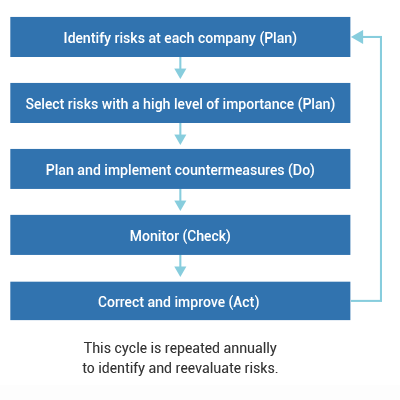
Based on its risk management regulations, the Sanwa Group identifies, analyzes, and evaluates business execution-related risks as well as undertakes measures required to avoid and/or mitigate risks. As a organization dedicated to promoting risk management, the Sustainability Committee reports and deliberates on the Sanwa Group’s basic risk management policies, risk management-related plans, and the progress of initiatives. In addition, the subordinate Quality, Environment and CSR Promotion Council and each Group company’s CSR Promotion Council manage risks by appropriately and rapidly responding to risks that occur during the course of each company’s business activities.
In addition to the aforementioned, since fiscal 2020 we have been building a management system to identify, from the top down, Company-wide risks that may have a significant impact on business operations and to work across departments to mitigate these risks. From FY2020 to FY2021, we worked on creating a sales management and inspection framework, implementing checks based on a list for an internal control system and strengthening working hour management in line with the stated objective of reducing compliance-related risk at all Group companies in Japan. In fiscal 2022, we made protecting personal information a central focus as well as promoting awareness of the management and handling of this information. In fiscal 2023, we initiated ways to address human rights risks, adopting the Sanwa Group Human Rights Policy in November. Going forward, our emphasis will be on human rights due diligence and remedies.
Risk Management Related to Climate Change
The Sanwa Group recognizes climate change as a key management issue. Basic policy and other important policies related to climate change are discussed by the Sustainability Committee, a dedicated risk management promotion organization, and reflected in our short- and long-term management plans. The Council regularly submits reports to the Board of Directors. In this way, we have systems in place to ensure that the Council is properly supervised by the Board of Directors.
Climate Change Governance Structure
| Board of Directors | Oversight of climate change response | Reports 4 times a year |
|---|---|---|
| Sustainability Committee |
Formulation of basic policy on climate change response Formulation of key issues related to climate change |
4 times a year |
| Officer in charge | President of Sanwa Holdings Corporation | |
| Department in charge | Corporate Communication Department |
Climate Risk Management Framework
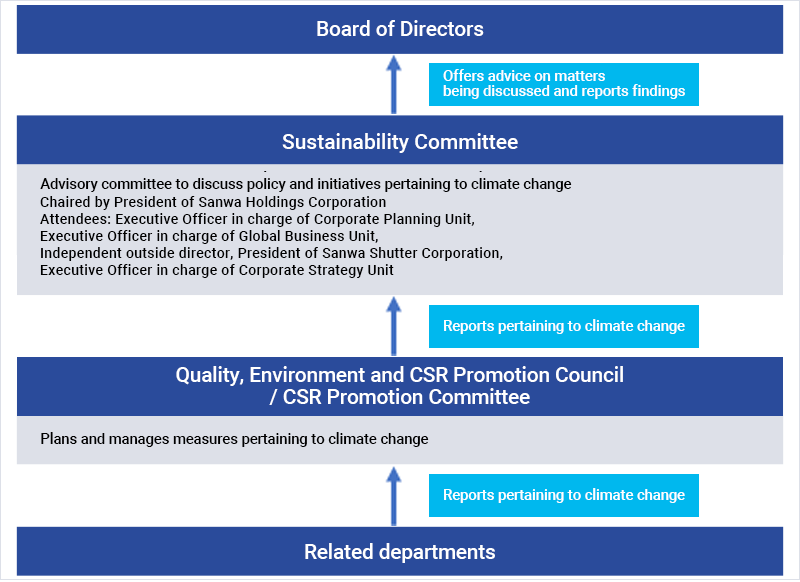
Business Continuity Plan
Basic Policy
Purpose
- Ensure the safety of employees, installers, internal contractors and their families
- Quickly resume business operations to avoid loss of business opportunities and maintain existing customers
- Cooperate with local residents near business sites and contribute to society
Core businesses* targeted
- Supply, maintenance and inspection of shutters and doors
*Core businesses: Defined as the products and services without which we would not be able to operate
Concept of the BCP
The Sanwa Group's business continuity plan (BCP) is based on disaster prevention measures to protect employees' lives and the company's assets. The objective is the continuity and rapid recovery of our core businesses.
We formulated the BCP with a focus on improving disaster prevention measures, based on the idea that we are not able to continue business without ensuring the safety of employees.
A BCP has been formulated for Group companies that have their head offices in metropolitan Tokyo, including Sanwa Shutter. The BCP assumes risks from an earthquake with its epicenter directly beneath metropolitan Tokyo.
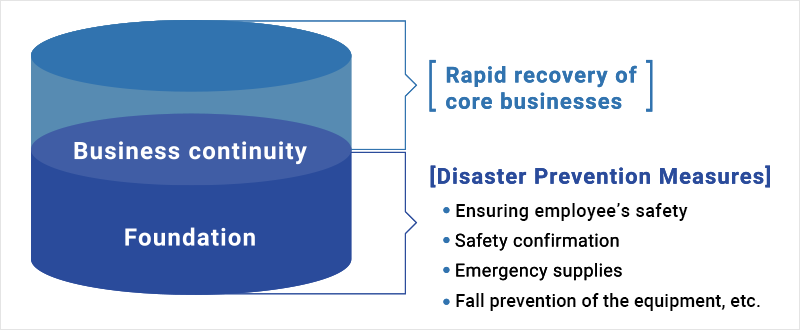
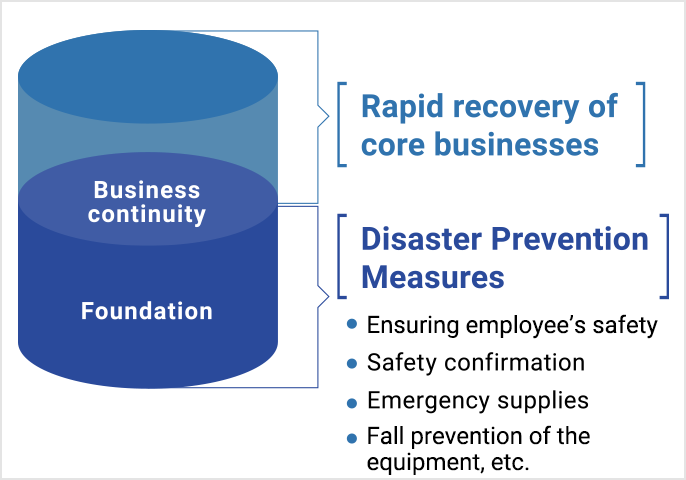
Main Measures in the BCP
- Establishment of rules and a manual for rapid resumption of business operations after a disaster
- Stockpiling of water, food and other supplies, measures to prevent equipment from falling, and introduction of a safety confirmation system for employees
- Annual drills conducted by the emergency headquarters assuming an earthquake directly beneath metropolitan Tokyo
- Arrangement of alternate means of procuring materials and parts, such as a dual sourcing system
- Relocation of servers for core internal systems to a data center designed to withstand an earthquake of upper 6 on the Japanese seismic intensity scale of 7
Establishment of the Information Security Countermeasures Council
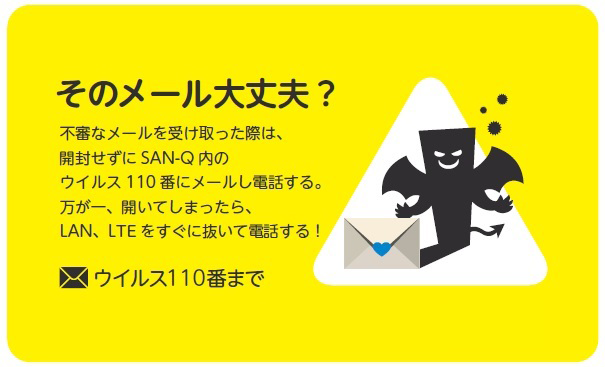
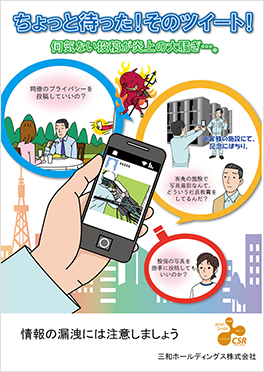
information security
In June 2019, we established the Information Security Countermeasures Council chaired by the executive officer in charge of the Corporate Planning Unit in order to enhance and promote security countermeasures during emergencies. The Information Security Countermeasures Council identifies security risks Group-wide (including overseas operations); investigates, formulates and implements various measures to maintain and increase security levels; and aims to formulate security measures based on the latest information received mainly from external organizations. In addition, we have established the 24-hour telephone/email hotline Virus 110 as a concrete security measure, provided training on targeted e-mail attacks, distributed security goods to raise awareness of information security, implemented measures to raise awareness of security measures among companies in our supply chain and partner companies, and conducted e-learning-based training programs.
Since 2020, we have worked on a business continuity plan (IT-BCP) that anticipates risks associated with cyberattacks and have created specific rules and procedures.
Going forward, we will work to further enhance information security countermeasures through multilayered initiatives in both hardware and software areas.